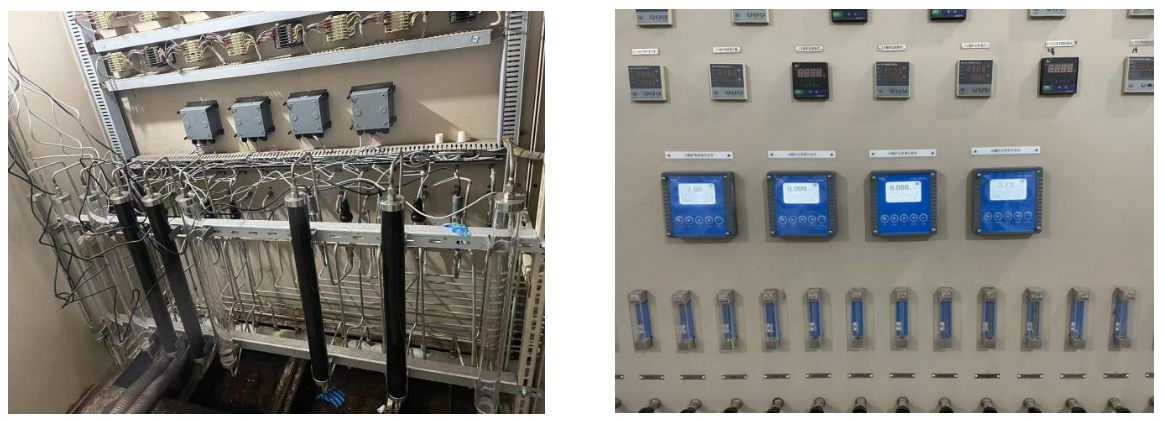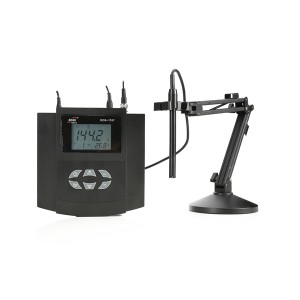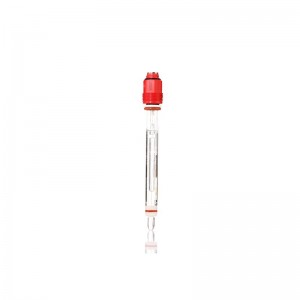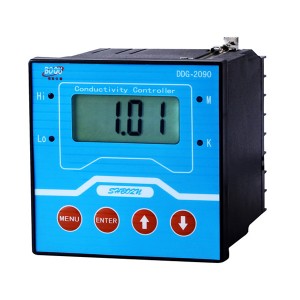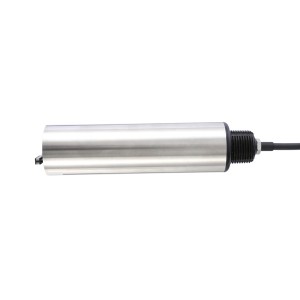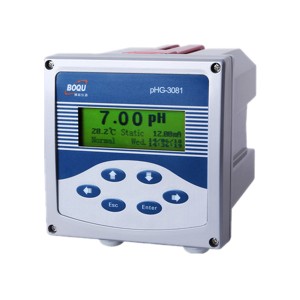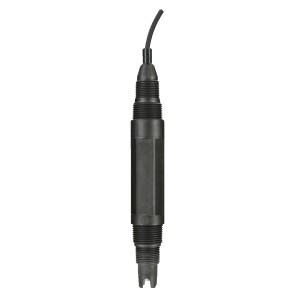Shanghai Certain Thermal Power Co., Ltd. operates within a business scope that encompasses the production and sale of thermal energy, the development of thermal power generation technologies, and the comprehensive utilization of fly ash. The company currently operates three natural gas-fired boilers with a capacity of 130 tons per hour and three back-pressure steam turbine generator sets with a total installed capacity of 33 MW. It supplies clean, environmentally friendly, and high-quality steam to more than 140 industrial users located in zones such as the Jinshan Industrial Zone, Tinglin Industrial Zone, and Caojing Chemical Zone. The heat distribution network spans over 40 kilometers, effectively meeting the heating demands of the Jinshan Industrial Zone and surrounding industrial areas.
The water and steam system in a thermal power plant is integrated across multiple production processes, making water quality monitoring essential for ensuring the system’s safe and reliable operation. Effective monitoring contributes to the stable performance of the water and steam system, enhances energy efficiency, and minimizes equipment wear. As a critical instrument for online monitoring, the water quality analyzer plays a pivotal role in real-time data acquisition. By providing timely feedback, it enables operators to adjust water treatment procedures promptly, thereby preventing equipment damage and safety risks, and ensuring the efficient and stable operation of the power generation system.
Monitoring pH levels: The pH value of boiler water and steam condensate must be maintained within an appropriate alkaline range (typically between 9 and 11). Deviations from this range—either too acidic or overly alkaline—can lead to metal pipe and boiler corrosion or scale formation, particularly when impurities are present. Additionally, abnormal pH levels may compromise steam purity, which in turn affects the efficiency and service life of downstream equipment such as steam turbines.
Monitoring conductivity: Conductivity serves as an indicator of water purity by reflecting the concentration of dissolved salts and ions. In thermal power plants, water used in systems such as boiler feedwater and condensate must meet stringent purity standards. Elevated levels of impurities can result in scaling, corrosion, reduced thermal efficiency, and potentially severe incidents such as pipe failures.
Monitoring dissolved oxygen: Continuous monitoring of dissolved oxygen is crucial for preventing oxygen-induced corrosion. Dissolved oxygen in water can react chemically with metallic components, including pipelines and boiler heating surfaces, leading to material degradation, wall thinning, and leakage. To mitigate this risk, thermal power plants typically employ deaerators, and dissolved oxygen analyzers are used to monitor the deaeration process in real time, ensuring that dissolved oxygen levels remain within acceptable limits (e.g., ≤ 7 μg/L in boiler feedwater).
Product List:
pHG-2081Pro Online pH Analyzer
ECG-2080Pro Online Conductivity Analyzer
DOG-2082Pro Online Dissolved Oxygen Analyzer
This case study focuses on the sampling rack renovation project at a certain thermal power plant in Shanghai. Previously, the sampling rack was equipped with instruments and meters from an imported brand; however, the on-site performance was unsatisfactory, and after-sales support did not meet expectations. As a result, the company decided to explore domestic alternatives. Botu Instruments was selected as the replacement brand and conducted a detailed on-site assessment. While the original system included imported electrodes, flow-through cups, and ion exchange columns, all of which were custom-made, the rectification plan involved not only replacing the instruments and electrodes but also upgrading the flow-through cups and ion exchange columns.
Initially, the design proposal suggested minor modifications to the flow-through cups without altering the existing waterway structure. However, during a subsequent site visit, it was determined that such modifications could potentially compromise measurement accuracy. After consultation with the engineering team, it was agreed to fully implement BOQU Instruments’ recommended comprehensive rectification plan to eliminate any potential risks in future operations. Through the collaborative efforts of BOQU Instruments and the on-site engineering team, the rectification project was successfully completed, enabling the BOQU brand to effectively replace the previously used imported equipment.
This rectification project differs from previous power plant projects due to our collaboration with the sampling frame manufacturer and the advance preparations made. There were no significant challenges related to the functionality or precision of the instruments when replacing the imported equipment. The primary challenge lay in modifying the electrode waterway system. Successful implementation required a thorough understanding of the electrode flow cup and waterway configuration, as well as close coordination with the engineering contractor, particularly for pipe welding tasks. Additionally, we held a competitive advantage in after-sales service, having provided multiple training sessions to on-site personnel regarding equipment performance and proper usage.


